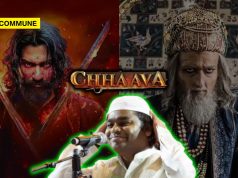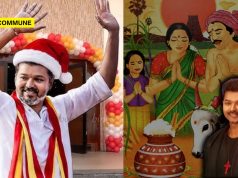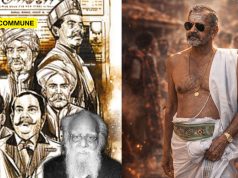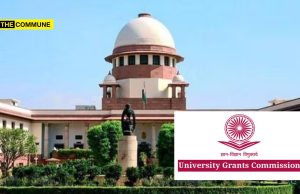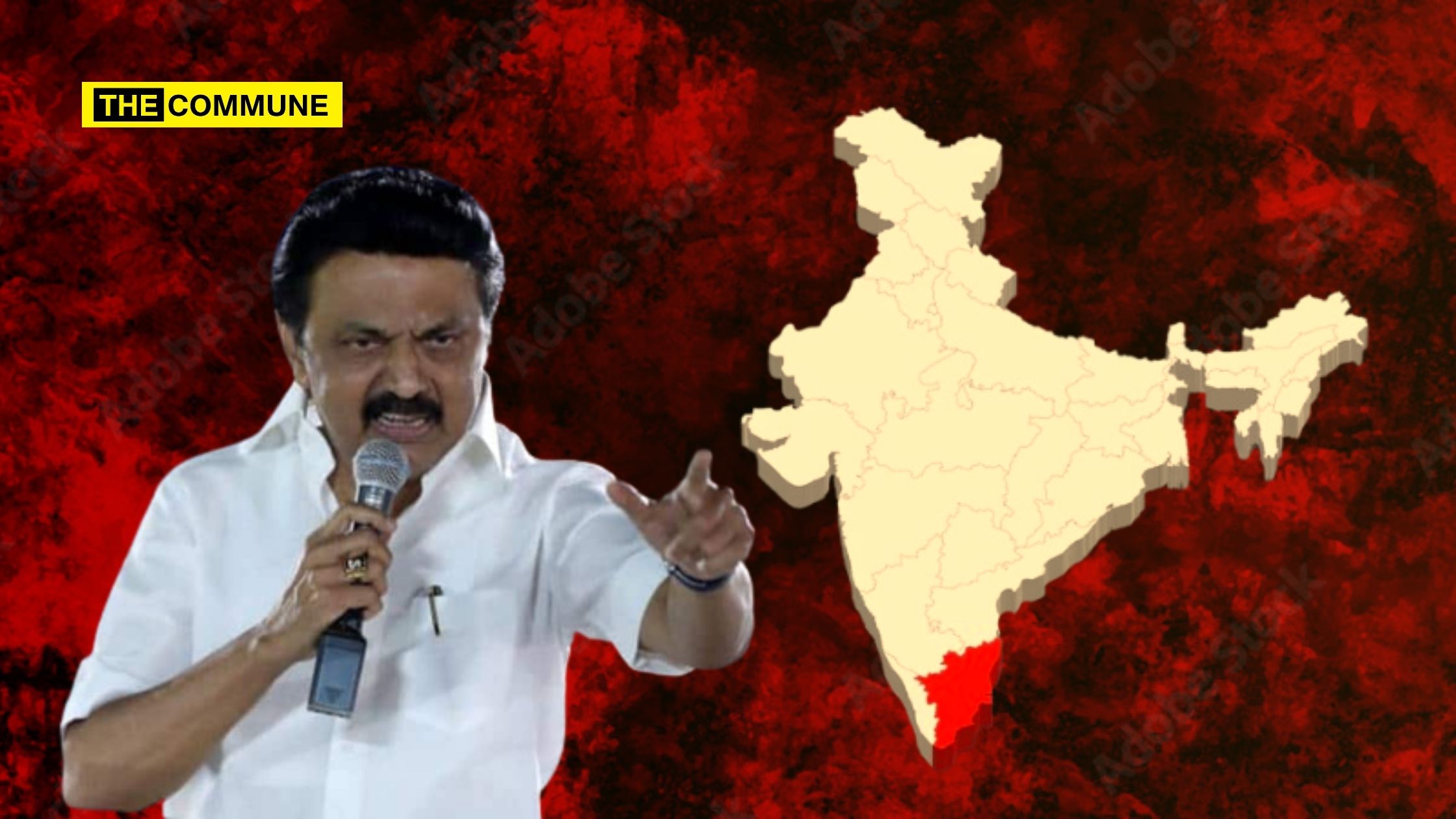
Tamil Nadu Chief Minister MK Stalin recently announced the formation of a high-level committee headed by retired Supreme Court Justice Kurian Joseph to examine state autonomy and center-state relations. The panel includes former bureaucrat Ashok Vardhan Shetty, economist M. Naganathan, and official T.S. Tirunavukkarasu. Ostensibly created to “safeguard the rights of states” and “rebalance” India’s federal structure, the move reveals more about the DMK’s electoral strategy than any genuine desire for reform.
The committee is expected to submit its report by January 2026—just ahead of the Lok Sabha elections. This timing is no coincidence. The DMK appears to be laying the groundwork for a campaign narrative centered on “defending Tamil rights” against perceived central overreach.
Historical Context: The Rajamannar Legacy
Stalin explicitly referenced the Rajamannar Committee of 1969, established by his father and former Chief Minister M. Karunanidhi. That committee, headed by former Madras High Court Chief Justice P.V. Rajamannar, proposed a radical overhaul of India’s federal system, including the abolition of All India Services, dismantling of the Planning Commission, and deletion of constitutional provisions such as Articles 356, 357, and 365.
These weren’t prudent reforms but a blueprint for fragmentation – a systematic attempt to weaken central authority to the point of creating a confederation rather than a federation. Unsurprisingly, the Central government rejected these proposals as both impractical and dangerously divisive, recognizing them for what they were: not a strengthening of federalism but a fundamental assault on the Union itself.
Identity Politics Disguised As Federalism
Stalin’s metaphor in the Assembly—that “only a mother knows what to feed her child, not someone from Delhi”—resurrects the old Dravidian binary of Tamil Nadu versus India. His strategic highlighting of grievances—GST compensation, NEET, and funding disputes—is not about governance efficacy. It’s about recasting routine federal friction as existential victimhood.
Most revealing is Stalin’s portrayal of the impending delimitation process as a “punishment” for Tamil Nadu’s population control success. This mischaracterization frames a constitutional necessity as ethnic or regional persecution, further stoking Tamil exceptionalism. Every disagreement becomes a symbol of oppression; every policy debate is turned into a cultural grievance.
Political Motivations And Timing
It can be argued the committee’s formation is more about political positioning than constitutional reform. With the report due just before the 2026 Lok Sabha elections, the DMK seems to be setting up a potent campaign narrative centered on “defending Tamil rights” against perceived central overreach.
The political context is significant: the opposition AIADMK has aligned with the BJP, creating an opportunity for the DMK to position itself as the sole defender of Tamil interests against national parties. By establishing this committee with judicial backing, Stalin can elevate policy disagreements to constitutional grievances.
The Judiciary Cover
The appointment of Justice Kurian Joseph as committee chair adds a layer of judicial legitimacy—but also controversy. Joseph has publicly questioned the Supreme Court’s motto, “Yato Dharmastato Jayah,” suggesting instead “Satyameva Jayate.” His recent statements hint at ideological sympathies with the DMK’s framing of center-state issues. This bolsters the perception of a predetermined outcome: a panel set up to validate an already scripted political narrative.
What Powers Do States Actually Lack?
It’s worth asking: what autonomy do states genuinely lack today? Local governance remains under state control. State governments already enjoy significant powers over service appointments, legislation, and education. As with the recent Supreme Court orders, we can see that the President and Governors are increasingly being compelled to assent to state laws within specific time durations (which is not mentioned in the Constitution itself), and vice chancellor appointments in universities dictated by state governments. Now, the DMK wants more influence over judicial appointments too.
Ironically, decentralization at the panchayat and municipal levels—constitutionally mandated—has been weak, not because of central overreach, but due to state apathy. So, this latest push for autonomy appears less about empowering the people and more about concentrating symbolic power at the state level.
So, what exactly is this new demand for “autonomy”? If anything, the states have gained more institutional clout over time—despite the DMK’s portrayal of being cornered.
Soft Secessionism Under The Federalism Mask
This isn’t merely a demand for fiscal reform or local empowerment. It is soft secessionism—a rhetorical strategy that seeks to redefine Tamil Nadu not as a member of the Indian Union but as an exceptional entity forced to “tolerate” the Centre. It repackages secessionist sentiment in constitutional garb. Even the committee’s language—“rightful entitlements of states”—mirrors the Rajamannar era’s push for a confederal structure. This is not federal reform; it’s a slow drift toward parallel sovereignty.
This also exposes a deeper political irony. The DMK, allied with Congress, frequently accuses the BJP of trying to undermine the Constitution.
If the DMK accuses the BJP of undermining the Constitution, a question naturally arises: Who actually started eroding state rights? During the Emergency, it was the Congress—now a DMK ally—that moved education from the State List to the Concurrent List. If Rahul Gandhi claims the BJP wants to change the Constitution, how does he explain that his own party already did it when it suited them?
And now, Stalin—who regularly invokes Ambedkar’s legacy—is launching a campaign that implicitly critiques Ambedkar’s Constitution for giving the Centre too much power. The contradiction is clear: Is this about restoring federalism, or reinterpreting the Constitution to suit regionalist ambitions?
Constitutional Reform Or Campaign Strategy?
Let’s call this what it is: an election strategy dressed up as constitutional reform. With the AIADMK aligned with the BJP, the DMK is angling to portray itself as the lone Tamil bulwark against “Hindi heartland” domination. By using a committee led by a retired judge, the party preempts criticism—“It’s not us; the committee found the Centre is overreaching.”
But behind this legalistic smokescreen lies a stark political truth: this is not a movement to defend Ambedkar’s Constitution—it’s a plan to reinterpret, dilute, and eventually rewrite it through regional exceptionalism.
So the question remains: Who is truly threatening the spirit of the Constitution? The BJP with its centralizing instincts? The Congress, which mutilated federalism during the Emergency? Or the DMK, repackaging secessionist impulses as state rights advocacy?
Subscribe to our channels on Telegram, WhatsApp, and Instagram and get the best stories of the day delivered to you personally.

